For More than 10 Years Mississauga Leading Raccoon Removal Specialists
Raccoon Feces Removal Mississauga
Need help with raccoon latrine removal?
We can help, call us now!
Safe, Fast, Affordable
Request Callback

Raccoons are cat-sized wild animals that are highly adaptable, and they are known to have dexterous anterior paws, which they use in finding foods. They often come around people’s home in search of foods in trash bins. These very sociable animals are known to form a community wherever they are. In their community, they often create a special site for their latrine. Because of the pathogens in the raccoon droppings, a raccoon poop can pose some serious health risks.
Are You in Need Raccoon Feces Removal Services? Call Us Now to Get a Free Quote: 647-931-6183
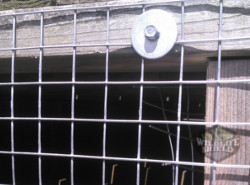
Raccoons Exclusion
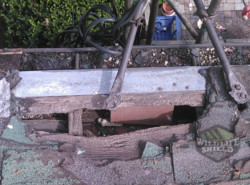
Raccoons Damage Roof Edge
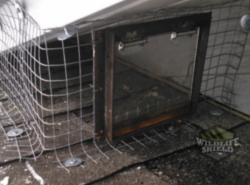
One Way Door
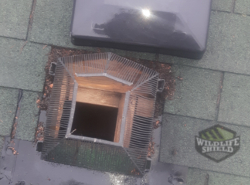
Raccoon Vent Damage
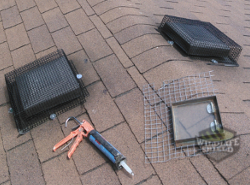
Vent Protection
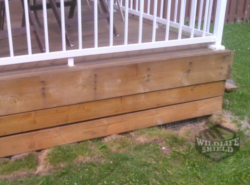
Raccoons Under Deck
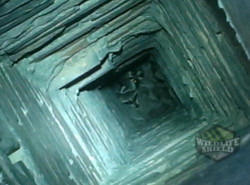
Raccoons In Chimney
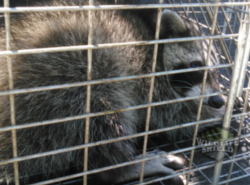
Raccoon Trapping
Services offered
Safe & Secure
Humane Removal
Affordable Pricing
Feces Removal
Disinfesction
Heat Sterilization

Operating in Mississauga
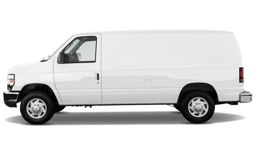
Unmarked Vehicles
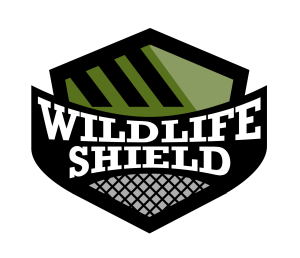
Division of Wildlife Shield
EXPERTISE YOU CAN TRUST
What does raccoon feces look like?
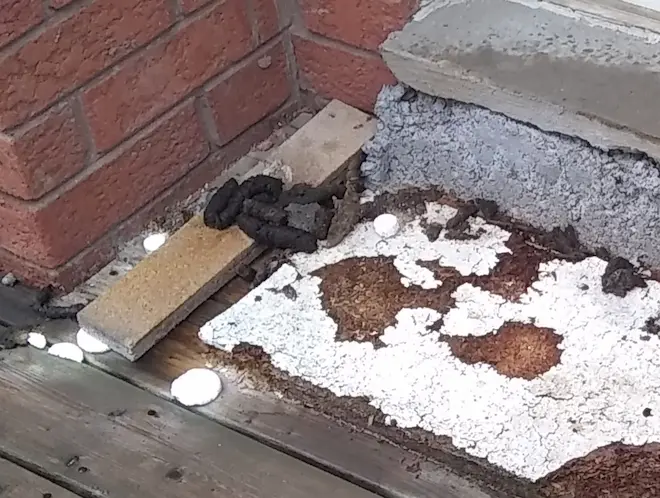
Raccoon feces look much like dog feces. The feces are normally about two to three inches long and about half an inch thick. Generally, fresh raccoon feces are often dark in colour, tubular in shape, and have blunted ends. However, the colour can change, depending on the content of the last meal the animal had.
One simple way to tell whether the feces is from dog or raccoon is to check for undigested feeds, as raccoon feces tend to contain pieces of undigested seed, berries, and nutshells. But as the feces age, they decompose and look more like dried leaves or debris, so there’s no way to tell.
Another peculiar feature of raccoon feces is that they are piled together since all the raccoons in a community usually poop at the site they have created for a latrine.
Why raccoon poop is dangerous
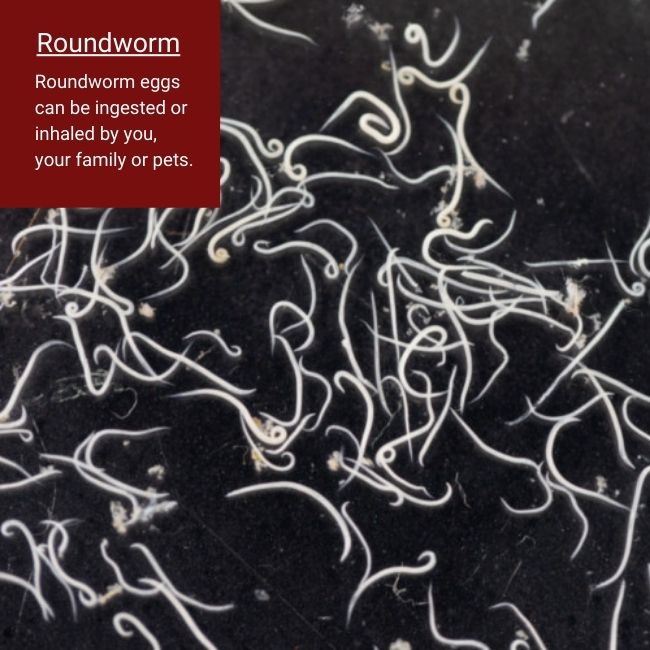
Raccoons shed a lot of disease-causing organisms in their droppings, making their droppings very dangerous. You should avoid getting in contact with them when you are not protected. The common notorious pathogens in raccoon feces include:
- Raccoon roundworm
- Giardia lamblia
- Salmonella spp
Raccoon roundworm: Also known as Baylisascaris procyonis, this parasite lives in the intestine of raccoons and produces large numbers of eggs, which are shed in raccoon feces. Raccoons pass thousands of these eggs in each dropping. Once these eggs are deposited in the environment, they develop into infectious cysts that are highly resistant to common disinfectants, and they can survive in the soil for many years.
According to the U.S. Center for Disease Control and Prevention, inhaling or accidentally ingesting these cysts during handling and cleaning can cause a dangerous disease known as larva migrans, which can affect different parts of the body. The brain, eyes, and liver are commonly affected, causing encephalitis, blindness, and liver enlargement, respectively.
Giardia lamblia: Giardiasis is a protozoa infection that can be contracted by ingesting the infective cyst from particles of raccoon feces. The symptoms include vomiting, diarrhea, and other gastrointestinal symptoms.
Salmonella spp.: Handling raccoon feces without taking adequate precautions can also expose you to salmonella organisms. Salmonellosis is a serious diarrheal illness that can also cause fever and vomiting.
The process of raccoon poop removal
It is not advisable to try to handle raccoon feces yourself because of the dangers of contracting a serious disease. Raccoon poop removal is better left to the professionals, but if you must do it yourself, take the following precautions:
- Put on a protective clothing
- Wear an N95-rated respirator —you can get this at the local hardware stores
- Wear disposable gloves and either cover your shoes with disposable booties or wear rubber boots that can be scrubbed
Removal of feces
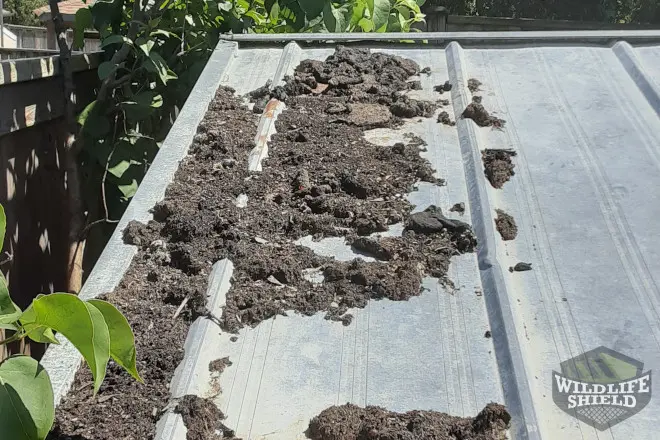
How you remove the feces depends on where the raccoon latrine is situated, as it may be outdoors or indoors.
If the feces are outside, this is what you should do:
- To avoid raising dust that could carry the infectious organisms to other parts of the home, sprinkle a little water on the latrine.
- With a shovel or rigid disposable scoop, gently gather the feces and any material contaminated with the feces into a heavy-duty plastic bag.
- Tightly close the bag and burn or bury it. Alternatively, place it inside another heavy-duty bag and send to a landfill.
If the feces are located inside the house, follow these steps:
- Fill a bucket with hot, soapy water
- Lightly mist the latrine area with a little water from a spray bottle to avoid stirring up dust.
- Use a shovel or inverted plastic bag to scoop the feces into a plastic bag.
- Then, use a damp sponge and the soapy water to gently and repeatedly wipe the area.
- Drop the sponge in the feces bag and then burn, or bury it. Alternatively, place it inside another plastic bag and send to a landfill.
Call now for professional, effective, and guaranteed wildlife removal options in Mississauga
Disinfecting the area
If the surface can withstand heat (outdoor surfaces), treat with a propane torch or boiling water. Treating with chemicals won’t work since the roundworm eggs are resistant to most chemicals.
For indoor surfaces, do not use a propane torch. You can use hot water to clean the area if the surface is heat resistant; if not, use a 10% bleach solution to dislodge any leftover roundworm eggs so you can rinse them away.
When you have finished, use boiling water to disinfect the shovel, buckets, and your boot. Then, wash your hand thoroughly with soap and warm running water.
Why you need to call a professional
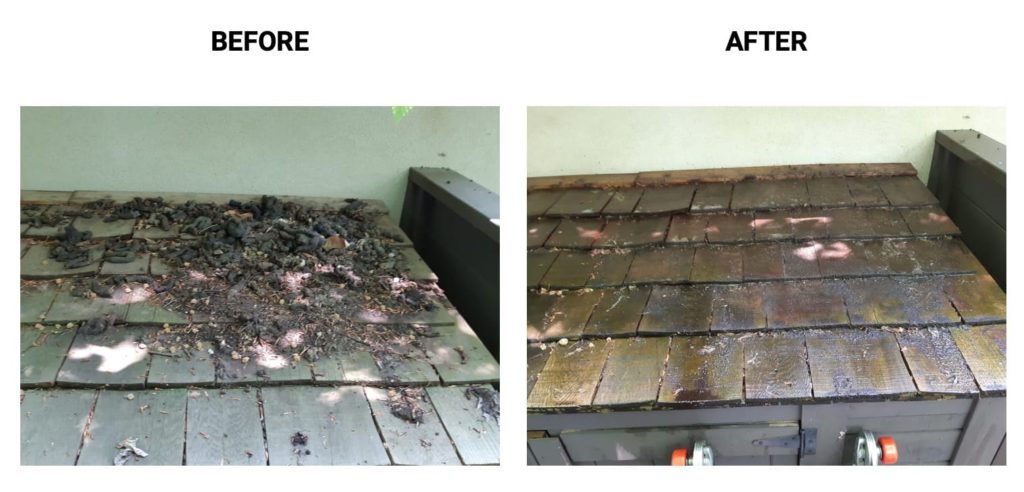
If you see raccoon feces in your home or notice signs of raccoon activity, you need to call our wildlife professional to inspect your home.
Given the dangers associated with handling raccoon feces, you are better off contacting a trained wildlife professional to remove the feces and clean up the place with the right material that can actually sterilize the eggs of the worms.
Apart from that, the only way to ensure you don’t come in contact with raccoon feces is by making sure that raccoons don’t stay in your home. You need a raccoon removal professional to remove the raccoons in your vicinity and secure your home to prevent another raccoon intrusion.
Are You in Need Raccoon Feces Removal Services? Call Us Now to Get a Free Quote: 647-931-6183
Do Not Try To Remove Raccoon Feces
If you come in contact with raccoon feces, keep your hands away from your face, wash your skin with soap, clean under your fingernails thoroughly and wash clothes separately in hot water.
Request a Free Quote
Complete the form below and we will reach out soon with more information on our fantastic services!